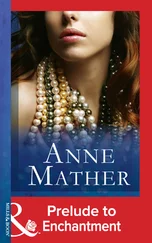The golds and greens of the Shenandoah Valley glistened in the morning sunlight, and away in the distance the Appalachians faded into range after misty range. I sat on a fallen tree to rest from my long walk and enjoy one of the loveliest views in North America. Since my discharge from the Settlement hospital I had made it my custom to go walking in the early morning, exploring a little farther every day as my strength returned. On this May morning I had managed to reach the foothills of the Blue Ridge Mountains before having to halt and recover my breath.
The Sherando Settlement was about five kilometers away, a cluster of stone buildings crowning a low hill, surrounded by fields of com and wheat, green pastures and grazing cattle, tree-filled gullies and winding streams. A picture of peace and calm prosperity. The only twenty-first-century intrusion was a bulldozer lumbering down the road from the Settlement to continue digging a reservoir at the base of the hill.
Judith and I had found refuge here, but now that I had almost recovered from my wound it could not be my refuge for much longer. Sherando was a community of Believers, and while I admired their discipline, their organization, and the ordered life they lived, I was not of their simplistic faith. They had welcomed Judith as a fellow-Believer and accepted me only because I was with her. And for only as long as I was not fit to leave. Suspicious of me at first, as they were suspicious of all outsiders, after two months they were beginning to treat me as one of themselves. Which I was not. And neither, I suspected, was Judith.
They were followers of the Teacher, living a communal life within two hundred kilometers of Greater Washington. During the thirty years since they had founded their Settlement in this Virginian valley they had converted a cluster of temporary buildings into the strong stone houses which covered the crest of the hill. Starting as a band of back-to-the-soil zealots they had developed into the kind of wealthy religious commune many other fundamentalist sects had attempted but few had achieved. Like their Puritan predecessors they were pragmatic and sensible. And like my own ancestors who had settled the northeastern seaboard five hundred years before they were united in the belief that they were the chosen of God. If their God—their Light—existed and had chosen anybody, I knew He had not chosen me.
Sherando was like a small self-contained city, inhabited by some five thousand self-satisfied citizens. Its founders must have included some wealthy converts or have had generous benefactors, for they had been able to purchase a prime site for their Settlement, and over the years they had continued to expand by buying up neighboring farms. Sherando was now the center of an agricultural complex; an affluent rural community in an affluent urban age.
It was affluent for the same reason that most Mennonite communities were prosperous. Both consisted of hard-working farmers who eschewed luxuries and labored for God as well as for themselves. But while the Mennonites avoided such modem conveniences as electricity and horseless carriages, the Believers in Sherando employed any modem device they judged useful. They were digging a reservoir with bulldozers, they ran a high-powered radio station which kept them in contact with Settlements in other parts of the world, and they had a stock of modern weapons stored in their warehouses. They did not use any chemicals developed after 1990, those for some reason had been forbidden en bloc by their Teacher, but their farms were producing crops as rich as any in the valley. Moreover they sold at a premium to the hosts of ignorant city dwellers for whom “organically produced” meant “manure only.” In fact, they used quadravalent carbon compounds as freely as had the farmers of the twentieth century. Only those developed after 1990 were verboten.
Sherando was a contented and fruitful community. Almost every woman over sixteen seemed to be either pregnant or suckling; its young females were still as fertile as girls everywhere had once been, a fact which outsiders were beginning to notice. Sherando was not my kind of society, but it was one of which I could approve. Judith did not.
She had operated superbly on my shoulder, but that was the last surgery she had been allowed to do. There were already eight physicians in the Settlement and Judith, unable to give her name and qualifications, had not been accepted by them. In any case a female surgeon would not have been welcomed. The protectiveness of Sherando toward its women limited their scope and, Judith claimed, was reducing them to their old inferiority under the guise of preserving Sherando as an oasis of human fertility. Moreover, although she was as devoted a Believer as anyone there, she was by no means a Puritan. She muttered about “Islamic heresies,” and resented having to live in the hospital while I had been allotted a room in the Bachelor Cloister. There was no spinster equivalent because there were, in effect, no unmarried post-adolescent women in the Settlement.
There was certainly a strong Puritan strain in the place; something that Judith insisted was no part of what the Teacher had taught. Personally I found it refreshing to live for a while in a community with a firm moral code, at least while I was too weak to find its sexual restraints uncomfortable. And my stay was only temporary, while it looked as if Judith’s would have to become permanent. Unless she chose to leave with me.
I did not want to leave until I was fit enough to go after Gerald Futrell, and though Judith had done a first-class job of nerve-splicing I had not yet recovered the full use of my left arm. I was going to need both my arms and all my skills to get within killing distance of him. As Drummond had told Judith the Attorney General was now the power behind the Administration, and was probably better protected than the President.
So my immediate aim was to stay in Sherando until I had acquired the strength and the means to complete what was my main mission in life. And sitting on the hillside in the spring sunshine I studied Sherando and wondered about ways to avoid being thrown out.
I could, of course, become a convert. That would have let me stay but would also have subjected me immediately to the rigid rule of life which the Believers either followed or were made to follow. I would have to surrender my guns and my money to the Settlement Council, and I would have to do whatever tasks the Council directed me to do. Nor would it be sufficient to say that I had been converted to the Light; I would have to demonstrate that I had been to the satisfaction of the Elders, the group of older men who ran the place. I doubted whether I could satisfy them; I have no great talent for hypocrisy. Becoming a convert was a stratagem of last resort; my problem that morning was thinking up a way to postpone having to make the committal.
Looking down at the trail leading from the Settlement I saw a horseman riding toward me. As he came closer I recognized the rider as Deacon Anslinger; one of the leaders of the Puritan party and a powerful member of the Council. A tall, black-haired, vigorous man of about thirty, he was wearing a broad-brimmed hat, a frock coat, riding breeches, and polished black boots. He looked rather like those pictures of Southern planters in advertisements for bourbon, and the whole effect would have been absurd except that Anslinger was the type of man whose clothes, while they might be unusual, were never incongruous. He also wore a gun-belt and a revolver under his frock coat; the only man in the Settlement who went armed.
He trotted his horse up the trail toward me, and I stood up. He must have seen me leave the Settlement, judged that if I was fit enough to walk this far then I was fit enough to keep on walking, and had come to tel me so. The best I could hope for were a few days to collect what things I had and perhaps try to persuade Judith to come with me.
Читать дальше
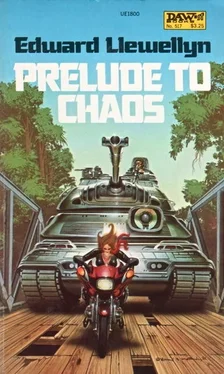
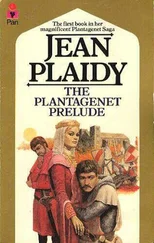



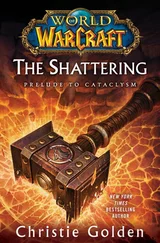
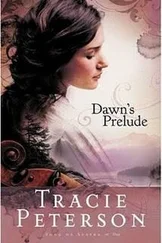
![Айзек Азимов - Прелюдия к Основанию [= Прелюдия к Академии // Prelude to Foundation]](/books/435122/ajzek-azimov-prelyudiya-k-osnovaniyu-prelyudiya-k-ak-thumb.webp)



